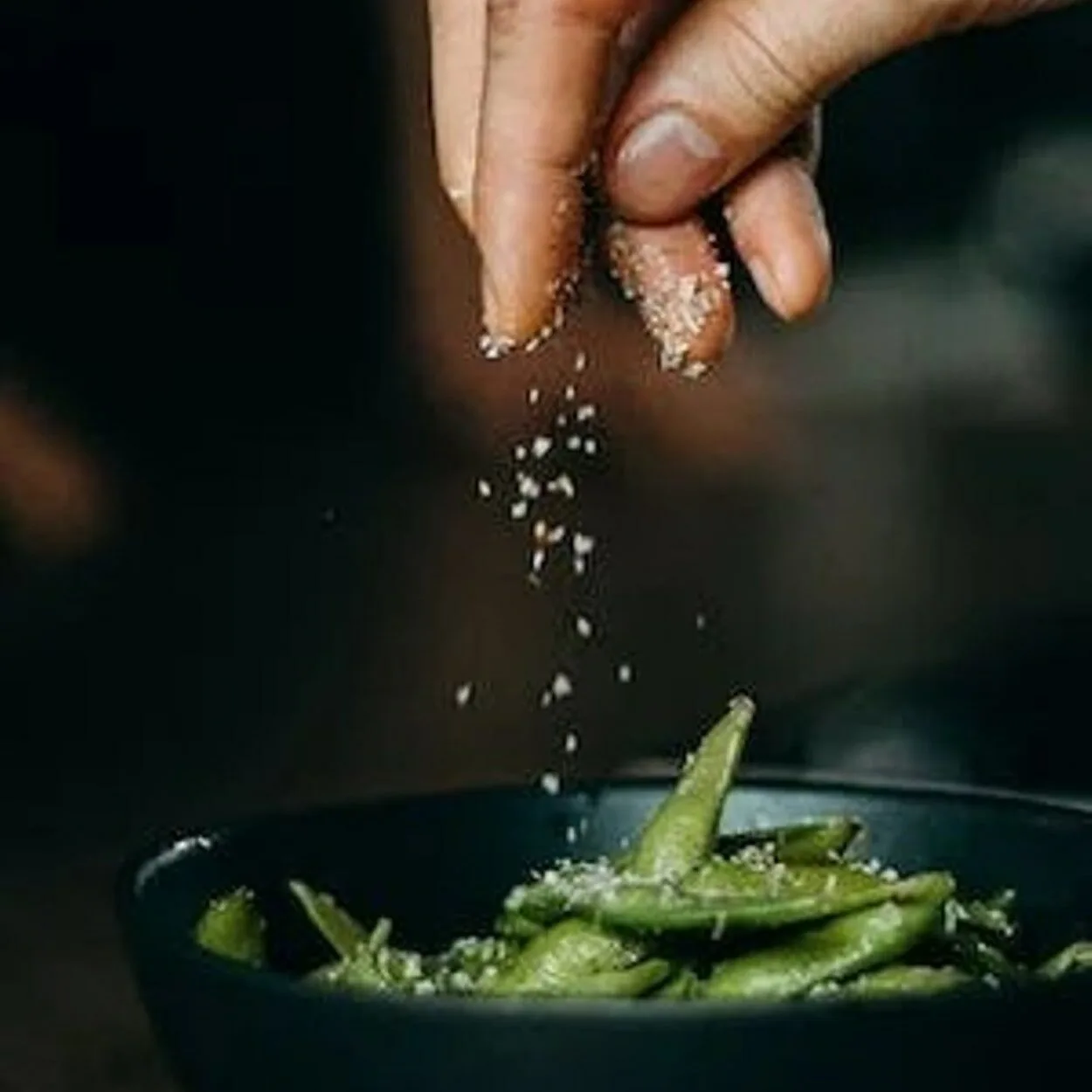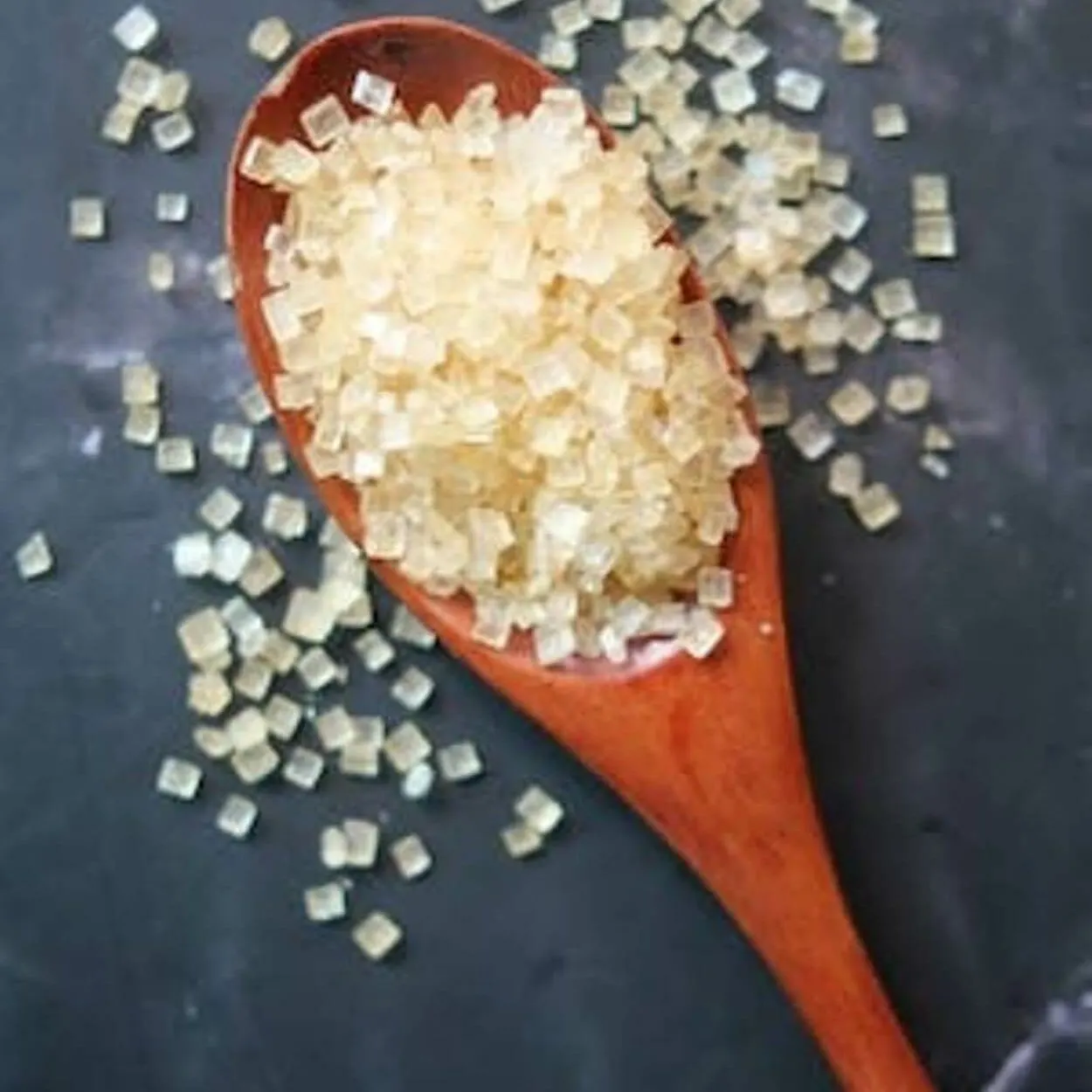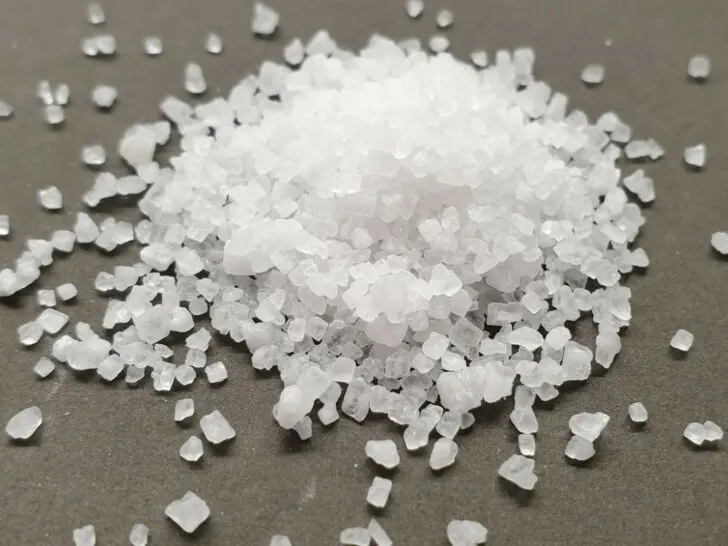Rock salt is a common name for salt used for de-icing roads and walkways and other non-culinary uses. Kitchen salt or kosher salt is coarse edible salt without common additions like iodine. It is also known as cooking salt, flake salt, or koshering salt.
Salt is a major ingredient throughout time. It is an essential element in the human diet. Salt is a significant mineral of sodium, consisting of 40% of sodium and 60% of chloride. Salt is a taste enhancer, as well as the universal ingredient for every food.
Salt not only adds flavor to the food, but it also plays a vital role in the human nutritional diet. A little amount of sodium is needed by the human body to convey nerve impulses, contract and relax muscles, and keep the right ratio of water and minerals.
Importance of Salt

Sodium chloride or table salt is an ionic component having the chemical formula NaCl. The Human body needs salt and it is responsible for various body functions such as nutrient absorption, fluid balance, fiber intake, muscle function, and nerve health.
On the other hand, salt is also beneficial for food preservation due to its high concentration which is unfavorable for bacterial growth.
In ancient times, salt was equal to gold and figured as a form of currency. However, most of the countries manufactured their own salt reserves to preserve extra food during wartime.
Effect of Salt on the Human Body
Salt has many health benefits when used in appropriate amounts in the daily intake. According to the research, 1tps of salt embodied about 2,330 mg of sodium. A normal adult should not exceed more than 2,330 mg of sodium or should use less than this specific amount.
Doctors believe that consuming excessive amounts of salt can lead to high blood pressure, nerve disorders, and other heart diseases. However, taking a limited amount of sodium is good for health.
Signs of Salt Deficiency
If we don’t take sufficient amounts of salt, it can create trouble for our health. A few of the following diseases can occur due to salt deficiency:
- Headaches
- Irritability
- Can reduce hydration
- Heart attack
- Weakness
- Cholesterol disturbance
Types of Salt
On the basis of processed and natural resources, salt is divided into different types. Processed salt is prepared and refined through machinery.
Natural salt is collected from rocks, the sea, and mines. For great health benefits, try to use natural salt instead of processed salt.
Our main topic is to provide the difference between kosher and rock salt. Let’s get started.
Kosher Salt
Kosher salt is a salt that occurs naturally, coarse-grained collected from the sea rocks or from mines deposited on land.
The word kosher is actually, used in the process in which blood can be removed from the meat. The process is known as koshering.
The salt is free from additives having a large flakes texture. Unlike table salt, kosher salt is a non-iodized salt. It is a light weighted compound, which does not fulfill the ratio of 1:1 in the cooking process.
The main key factor which makes this salt unique is the texture and shape. Because of its larger flake size and easy-to-pick quality, the salt is best for koshering method.
Kosher salt is distributed in two types:
- Coarse-grained kosher salt
- Kosher salt, which is certified by the Jewish Institute.

Jewish Institute Certified Kosher Salt
Kosher salt fulfills and meets the directions given by Jewish law and instructed by kosher certification organizations. According to the law, the product is suitable for consumption in koshering process and is appropriate for koshering diet.
The process follows strict conditions and the salt from mines is processed under the strict guidelines of the institute given. After mining, refining, and other processing the packaging gets the certificate from the institute.
Why Kosher Salt is Unique?
Because of its natural properties, unrefined quality, and absence of sea pollutants, kosher salt is unique from other types of salt.
Another key feature that makes it unique is the light texture which can make it easily blend while used in cooking.
Common uses of Kosher Salt
Like other salts, kosher salt is commonly used in all forms of cooking but it is not supposed to be best for baking.
Common uses of kosher salt are as follows:
- Seasoning and koshering meat: Kosher salt is good for seasoning meat and veggies, for marinating purposes or it is the best option for koshering meat.
- Brining: As the salt has no additives, and any anti-caking agent because of this quality kosher salt is good to dissolve in water without changing its color.
- Margaritas: For drinks like margaritas, and other soft drinks kosher salt is good for its easy-to-dissolve quality which makes the flavor more complex.
- Smoking: To enhance and for a unique delicious taste, smoking is the favorite way and kosher salt is best for this purpose. Its larger flakes can help smoke penetrate less dense particles.

Nutritional Table for Kosher Salt
| Nutritional Facts per 1 tsp | % Daily Value |
| Calories | 0g |
| Fat | 0g |
| Saturated fat | 0g |
| Trans fat | 0g |
| Polyunsaturated fats | 0g |
| Monounsaturated fats | 0g |
| Sodium | 145% or 3,333 mg |
| Calcium | 0.01% |
| Iron | Less than 0.01% |
| Chloride | 65.40% |
| Potassium | 0.009% |
| Magnesium | 0% |
Rock Salt
Rock salt or halite having the same chemical formula NaCl is the type of mineral that comes from layers of crust in water or when large areas of lakes or seas dry up.
Depending upon the amount of pollutant, the color of rock salt varies. Commonly it is found in white or colorless solid texture.
Rock salt is collected directly from the surface of the earth, so it maintains its original crystalline solid shape.
Rock salt has impurities and additional minerals, and it is not processed. However, it is not deliberated in human consumption.
It is found in a very large, bulky form and because of its shape and unrefined quality rock salt is suitable for gritting roads, making ice cream, and retaining coolers cold.

Rock Salt Taste
When compared to other salts, rock salt has a sharp bitter taste. It is lighter in weight and rotten and used for other purposes rather than human consumption.
Culinary Use of Rock Salt
Because of its larger size and crystalline body, the rock salt is not appropriate for cooking, it takes too long to liquefy. But on the other hand, rock salt is used to make ice cream. It helps to chill and cold ice cream by combining chilling and other techniques.
Another use of rock salt is it works as a water softener. Besides this, it lowers the melting temperature which helps to freeze the ice for a long period of time.
Rock salt also uses as a weed killer. The small quantity of sodium chloride is nature friendly and can act as a chemical weed killer.
Rock salt in large quantities is best for this purpose. But consider the quantity of salt, as excessive amounts of salt can kill the plants as well.
Nutritional Table for Rock Salt
| Nutritional Facts per 1 tsp | % Daily Value |
| Calories | 0g |
| Fat | 0g |
| Saturated fat | 0g |
| Trans fat | 0g |
| Polyunsaturated fats | 0g |
| Monounsaturated fats | 0g |
| Sodium | 38,758 mg |
| Calcium | 2% |
| Iron | 1% |
| Potassium | 8 mg |
Why Salt is Necessary for Our Diet?
According to the Dietary Guidelines America, people from age 14 and above should not exceed 23,000 mg of salt per day.
But not taking salt in your daily intake is also not good for our health. As we read above salt plays an essential role and is an important mineral for our body regulation.
The American Heart Association recommends about 500 mg of sodium you should take daily in your daily diet. 500 mg of sodium is equal to ¼ tsp per day. The less sodium intake in your diet can cause hyponatremia, a condition that shows a low level of sodium in your body.
Other Uses of Salt
Besides the uses of cooking, preserving food, and koshering, salt also acts as a cleaning agent.
- For cleaning the floor surface mix salt with any dishwasher or soap, and rub the surface.
- Salt can remove blood stains.
- By mixing salt and white vinegar, you can clean coffee and tea stain from mugs or from the surface.
- After mixing salt, flour, and vinegar you can sweep brass and copper from the tarnished area.
- It can also wash fruit and wine stain.
Difference Between Kosher Salt and Rock Salt
| Qualities/ Features | Kosher salt | Rock salt |
| Source | Salt mines deposited on land or underground | From the surface of the earth’s crust after evaporating water |
| Composition | It is primarily made of sodium chloride. | It is also a mixture of sodium chloride. |
| Color/Texture | Larger flaky texture with white color | Solid crystalline irregular shape found in chunks, white or sometimes pink due to the impurities |
| Nutritional value | Rich in sodium chloride, calcium, and other nutrients after refining | Sodium chloride in pure form, with potassium and iron |
| Culinary uses | Seasoning meat and veggies; marinating meat; best for koshering process and other cooking use except baking | Due to its unrefined form, it is not specific for cooking, usually use for making ice cream, keeping coolers cool, gritting roads, etc. |
Conclusion
- Salt is necessary for our body’s health when used in adequate amounts.
- Kosher salt is sometimes refined and processed salt after getting certified by a Jewish institute, while rock salt is unrefined crystalline salt.
- As a matter of fact, salt gives flavor to our food, but can cause health complications when use in large amounts.
- Salt has a variety of uses, not only in the kitchen but outside the kitchen as well such as in cleaning, for melting ice, and as body cleansers.
Other Articles
- What’s The Difference Between A Dumpling And A Potsticker? (Explored)
- Beef Steak VS Pork Steak: What’s the Difference?
- What Is The Difference Between Chipotle Steak And Carne Asada? (All You Need To Know)
- Different Types Of Steaks (T-Bone, Ribeye, Tomahawk, and Filet Mignon)
- What Is The Difference Between Beef And Steak?

